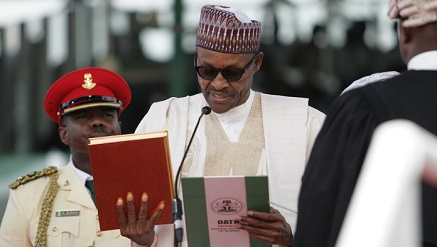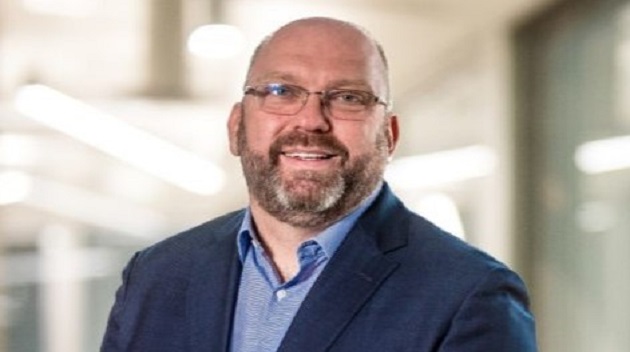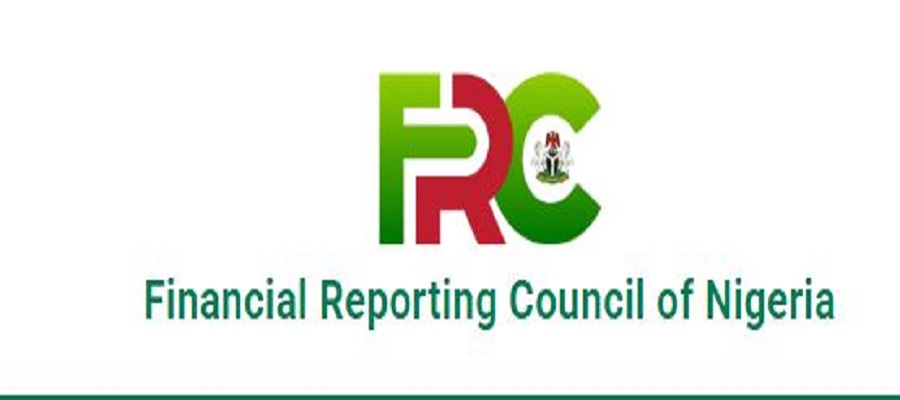General News
Deeper Look into Buhari’s Inauguration Address

In Nigeria’s current circumstances, it is hard to imagine a better inaugural address than the one President Buhari delivered on May 29. It strikes all the right notes.
He accepted his new role as an international leader and thanked former president Goodluck Jonathan for his “statesmanship” in the transition, everyone involved in the electoral process, and Cameroon, Chad, and Niger for their part in the fight against Boko Haram.
The speech was plain and devoid of national or personal self-congratulation and baroque rhetorical flourishes. It was also very short—only 1,909 words—but packed with substance.
On domestic issues, Buhari said there would be no “paying off old scores.” With the amnesty program in the Niger Delta, which disarms and rehabilitates militants, ending in December, Buhari emphasized that the federal government “intends to invest heavily in the projects and programs currently in place.”
He also promised true federalism, with a revamping of the relationships between the executive, legislative, and judicial functions at the federal level, and between the federal, state, and local governments. And he promised to fight corruption.
The speech was also remarkable for its candor. On Nigeria’s notorious poor governance: after paying tribute to the heroes of Nigeria’s foundation, he said, “Some of their successors behaved like spoilt children breaking everything and bringing disorder to the house.” Or, “The judicial system needs reform to cleanse itself from its immediate past. The country now expects the judiciary to act with dispatch on all cases especially on corruption, serious financial crimes, or abuse of office.”
Buhari characterized Boko Haram as “a mindless, godless group who are as far away from Islam as one can think of.” His analysis of the immediate contributors to the rise of Boko Haram is cogent: “Boko Haram is a typical example of small fires causing large fires. An eccentric and unorthodox preacher [the founder of Boko Haram] with a tiny following was given posthumous fame and following by his extrajudicial murder at the hands of the police. Since then, through official bungling, negligence, complacency, or collusion, Boko Haram became a terrifying force taking tens of thousands of lives…”
Western friends of Nigeria will particularly welcome the specific steps Buhari announced with respect to the struggle against Boko Haram: an overhaul of security service rules of engagement to “avoid human rights violations in operations. We shall improve operational and legal mechanisms so that disciplinary steps are taken against proven human rights violations by the armed forces.”
He said he would move the headquarters of government efforts against Boko Haram from Abuja to Maiduguri. On Boko Haram kidnapping, he said “…we cannot claim to have defeated Boko Haram without rescuing the Chibok girls and all other innocent persons held hostage by insurgents.”
General News
NCS to Launch Electronic System for Cash Declarations at Airports

Nigeria Customs Service (NCS) is set to introduce an electronic declaration system to streamline and enhance compliance for travelers carrying cash into or out of Nigeria.

Speaking in an interview with the News Agency of Nigeria (NAN) in Abuja, Abdullahi Maiwada, NCS spokesperson, emphasized that the initiative aligns with efforts to strengthen Nigeria’s anti-money laundering framework and reinforce financial regulations.
“The Nigeria Customs Service (NCS) has announced the deployment of an Electronic-Currency (E-Currency) declaration form as part of its anti-money laundering measures for travelers carrying cash into and out of Nigeria,” NAN reported. The system will require travelers carrying amounts exceeding the legal threshold to declare them before arrival or departure.
Maiwada further explained the process, stating, “We have developed a system where, even before leaving your point of origin, you can scan a QR code, access the form, fill it out, and we will be able to see it from here.”
He noted that the initiative, set for rollout soon, will enhance monitoring and facilitate information sharing with relevant authorities.
Under the Anti-Money Laundering (Prevention and Prohibition) Act 2022 and the NCS Act 2023, travelers carrying over $10,000 (about N15.4 million) or its equivalent in negotiable instruments must declare the funds to Customs authorities.
To boost awareness, the NCS is working with airline operators to inform travelers through onboard announcements and plans to reinstate signage at airports and border points in English and French.
The move comes as part of broader efforts to tighten financial controls following a recent case at the Murtala Muhammed International Airport (MMIA), where Customs officials seized $578,000 from a passenger attempting to evade currency declaration regulations.
General News
Aquaterra Energy Secures Multi-million-dollar well Intervention Contract with Intrepid Energy in Nigeria

Aquaterra Energy, a leader in offshore engineering solutions, has secured a multi-million-dollar, multi-year contract with Intrepid Energy Limited (IEL) to deliver a bespoke subsea well intervention equipment package for a project in Nigeria.

Aquaterra Energy’s turnkey well access package will enable IEL to conduct intervention operations across multiple mature oil wells in the region, supporting enhanced reservoir production.
The contract includes the supply of a complete seabed-to-surface intervention system and package, spanning from the subsea tree to surface intervention equipment.
Key components include Aquaterra Energy’s TRT tieback tooling, which provides production bore and annular access, a lightweight well pressure control system, and an ISO 13628-7 qualified open water intervention riser with an integrated tensioning system. In addition to equipment provision, Aquaterra Energy will also deliver ongoing offshore engineering support throughout the project.
The 7- 3/8” lightweight well access solution, has been specifically engineered for deployment from jack-ups and lift boats. This innovative approach offers a cost-effective and operationally efficient alternative to floating vessels, reducing intervention costs while maintaining high safety and performance standards.
Andrew McDowell, Delivery Director at Aquaterra Energy comments: “Our expertise in offshore engineering allows us to develop tailored intervention solutions that address the operational challenges of subsea well access.
This system has been engineered for efficiency, ease of deployment, and safety, helping IEL optimise intervention activities across Nigeria while reducing costs. By delivering a complete, integrated package, we are simplifying complex operations and enabling operators to maximise production potential.”
Engr Seun Alonge, CEO at Intrepid Energy Limited adds: “Working with Aquaterra Energy marks a significant step forward for our intervention operations in Nigeria. Their specialised technology enhances our ability to execute intervention programmes efficiently, maximising performance across our assets.
By combining Aquaterra’s technical expertise with our deep understanding of the local operating environment, we’re confident this collaboration will enhance production outcomes and create lasting value for our operations in the region.”
The project is set to support intervention operations over multiple years, with Aquaterra Energy providing ongoing technical expertise, with a dedicated team of engineers providing ongoing service support throughout the project.
George Morrison, CEO at Aquaterra Energy: “Delivering reliable and efficient well access solutions for shallow water subsea operations is central to how we support offshore operators.
This collaboration with IEL reinforces our commitment to providing cutting-edge engineering solutions that enhance efficiency and reduce operational costs. With West Africa playing an important role in the global energy sector, we’re proud to continue supporting its offshore industry with our expertise and innovative technologies.”
General News
FG Halts Controversial FRC Dues amid Industry Outcry

Federal government has temporarily suspended the controversial annual dues imposed on public interest enterprises by the Financial Reporting Council (FRC) after fierce opposition from businesses.

Jumoke Oduwole, minister, Industry, Trade, and Investment, announced the decision during a Ministerial Consultative Meeting in Abuja on Wednesday.
The move follows mounting pressure from private sector groups, including the Nigeria Employers’ Consultative Association (NECA) and the Manufacturers Association of Nigeria (MAN), who slammed the Financial Reporting Council (Amendment) Act 2023 for burdening companies with excessive fees.
The Act mandates cumulative annual charges for non-listed entities and imposes a harsh 10% monthly penalty on unpaid dues, compounding until full payment, a provision that sparked widespread backlash.
At the meeting, major industry players like NECA, MAN, the Nigerian Association of Chambers of Commerce (NACCIMA), oil producers, and telecom operators warned that the fees would cripple businesses already struggling in a tough economy.
Oduwole clarified the suspension, stating, “The government has decided to direct the Financial Reporting Council to pause in the implementation of the new annual dues. You know that I am a lawyer, and a suspension request by the organised private sector would be in contravention of legislation duly passed by the National Assembly. A pause is an administrative process simply to review, in line with what we discussed today.”
She assured stakeholders that the halt would last no longer than 60 days, with a technical working group—including FRC officials and private sector representatives—set up to reassess the policy.
“We are a listening administration. The private sector has requested a range from three months to an indefinite suspension. We are not going to do that. So, at the most, 60 days is in my estimate. We are going to set up a technical working group comprised of the FRC and the organised private sector who have formally written in, and this will be reviewed,” Oduwole emphasized.

 News3 days ago
News3 days agoCourt Throws Out Falana’s Fraud Case against Ekeh, Zinox Boss and Others

 E-Financial3 days ago
E-Financial3 days agoHeritage Bank Depositors Seek National Assembly’s Help to Recover Trapped Funds

 Telecom2 days ago
Telecom2 days agoAgain, Labour Fumes, Threatens Shutdown of Telcos over Non-Implementation of 15 Percent Tariff Reduction

 Telecom3 days ago
Telecom3 days agoNokia Unwraps 5G Gateway for Home Internet

 News3 days ago
News3 days agoFG to Halt Solar Panel Imports, Pushes for Local Manufacturing

 News2 days ago
News2 days agoNNPC Ready to Go to Capital Market for IPO- CFIO

 E-Business2 days ago
E-Business2 days agoQNET Disassociates From Fraudulent Academy in Abuja, Supports EFCC Arrest

 News3 days ago
News3 days agoFG Receives N1Bn Grant from Airtel Africa to Boost 3MTT Programme















